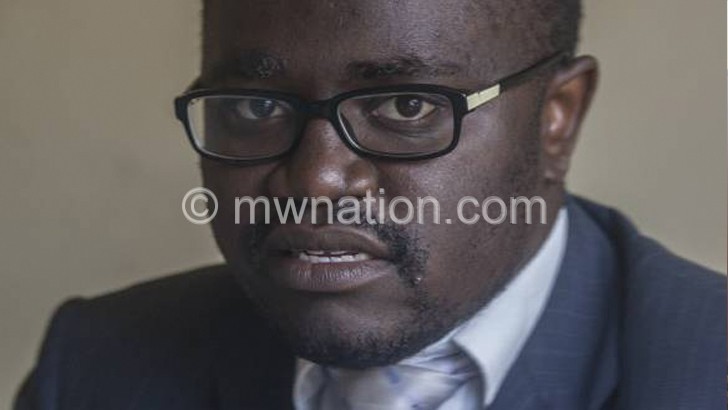DPP’s blue night foray
The High Court in Zomba has set February 20 2018 to start hearing the case in which five civil society organisations (CSOs) want the governing Democratic Progressive Party (DPP) to pay back money it got from parastatals during its dinner and dance dubbed the Blue Night.
The CSOs are Centre for the Development of People (Cedep), Youth and Society (YAS), Human Rights Consultative Committee (HRCC), Centre for Human Rights and Rehabilitation (CHRR) and Livingstonia Synod’s Church and Society Programme.
DPP is alleged to have solicited at least K13.5 million from public institutions when it hosted the Blue Night at Kamuzu Palace in Lilongwe on July 29 last year where President Peter Mutharika was the guest of honour.

This is abuse
High Court Registrar for Zomba, Benedictus Chitsakamile, and lawyer representing the CSOs, Wesley Mwafulirwa, confirmed commencement of the case in separate interviews yesterday.
Mwafulirwa said respondents in the Civil Cause Number 41 of 2017, the DPP, Lilongwe and Blantyre city councils as well as Lilongwe Water Board (LWB) have not responded on the case; hence, commencement of hearing.
He said: “It is also our strong legal opinion that transparency and accountability on issues of financing of political parties has a huge bearing on democratisation strongly entrenched in our Constitution as well as statutes.”
“Section 25B (2) of the Corrupt Practices Act proscribes against private citizens’ inducement of public officers to abuse their positions.”
He said this is why the CSOs want the DPP to pay back all the money it received from these public institutions.
This is one of the rare, but high profile cases of public finance management, where the conduct of a ruling party is being questioned in relation to abuse of public resources by soliciting money from parastatals for political activities.
The CSOs, in the case, argue that soliciting money from parastatals amounts to misuse and abuse of public resources.
Under Section 178 of the Constitution and Section 23 of the Public Finance Management Act, public money is not supposed to be expended unless authorised by an Appropriation Act or is a statutory expenditure.
As for expenditures by statutory corporations, Section 76 of the Public Finance Management Act provides that funds held by statutory bodies must only be applied for the purposes specified in the relevant empowering Acts.
Through their action filed at the High Court of Malawi’s Zomba District Registry last September, the CSOs seek a court order to stop the DPP from ever sourcing or accepting donations from any public funds or public institutions unless it complies with the relevant legal framework.
According to Mwafulirwa, his clients want the court to declare that the applicants have a right to access information on how public institutions funded DPP and how the other respondents spend public resources.
They also want a mandatory court order for the DPP to furnish them with names of all institutions that pledged donations to the fundraising cause or an order that compels the respondent public institutions to provide a breakdown of how much they donated or pledged towards the Blue Night.
Additionally, the CSOs want a declaration that the donations the public institutions made to the governing party contravene the doctrine of public trust, the Constitution and sections 23 and 76 of the Public Finance Management Act.
Mzuzu City Council, which was initially the fourth responded in the case, signed a Court Order stating that it will no longer contribute K3.5 million towards activities of the DPP and was consequently withdrawn.
Prior to the court process, DPP engaged the CSOs in dialogue, but the CSOs pulled out after the party postponed a scheduled meeting where it was expected to furnish the groups with names of institutions that donated to the party and the date it planned to refund the donations.
Initially, when the CSOs, including Malawi Law Society (MLS), condemned DPP’s collection of funds from the State agencies, DPP secretary general Greselder Jeffrey branded the criticisms as zachamba (nonsense), which angered the CSOs.
She later apologised for the uncouth language and engaged the CSOs in a dialogue that collapsed, leading to the court case. n





